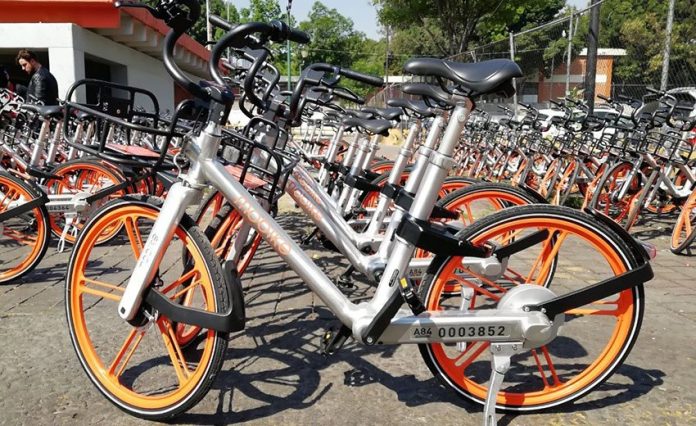Just three months after it started a pilot program in Mexico City, the Chinese-owned bicycle-sharing company Mobike has hit a hurdle: bicycle theft.
The problem has escalated to such an extent that dozens of the scheme’s users have taken to social media in recent days to complain about the lack of available bicycles.
“It’s a situation that unfortunately afflicts our city,” Mobike’s government relations director Armando Reyes told Forbes México, referring more broadly to theft in the capital.
Reyes added that the company has filed official complaints that have led to around 10 arrests, while authorities have been helping Mobike to recover its missing bicycles. However, he declined to say how many have been stolen.
The scheme was introduced in the Miguel Hidalgo borough in mid-February with 500 bikes made available in the upmarket business and residential district of Polanco while Mobike waited for approval to expand to other parts of the city.
The company’s Mexico director, Rene Ojeda, told the news agency Reuters that subscriptions for the service have grown by 70% per week in the short period it has been operating, placing additional pressure on the number of bikes available.
But an investigation by Reuters found that more than 10% of the available bikes are permanently out-of-action — at least for legitimate users.
Using Mobike’s mobile app, the news agency said that it located 60 of the GPS-equipped bikes in the Mexico City neighborhood of Tepito, which is infamous for crime and its street markets where all manner of pirated and illegal goods are available.
Ojeda said that some Mobike users ride the bikes to work and later leave them in the Barrio Bravo (tough neighborhood), which is located outside its operating area just north of Mexico City’s historic center.
But by reviewing the app at various times over the course of this week, Reuters determined that none of the Mobikes in Tepito ever left the neighborhood.
A local resident said that thieves are “using the bikes to move drugs.” Two other residents confirmed that to be the case.
Mobike didn’t respond to the allegations but Reyes said the company is taking “strong actions” to stop its users taking the bikes outside of the Polanco area.
Users can now be fined 49 pesos (US $2.45) for leaving the authorized area designated by the app, an amount that is equivalent to the service’s monthly subscription fee. The bikes are fitted with an alarm that alerts the company when a bike has left its operating zone.
Further sanctions, such as completely banning repeat offenders, are being considered, Reyes said.
Meanwhile, some users say that they are considering switching to one of Mobike’s Mexican competitors given the difficulty of finding an available bike.
EcoBici— a Mexico City government scheme that covers a much larger part of the city — has 6,500 bikes and 260,000 users, while privately-owned VBike operates with around 2,000 units.
One disgruntled former Mobike user told Reuters he has already made the switch. “Mobike was a good option for me since I work in the area”, Fernando Galicia said.
“But I’ve gone to EcoBici, and not because it’s cheaper, but because they always have bikes.”
Source: Forbes México (sp), Reuters (en)
